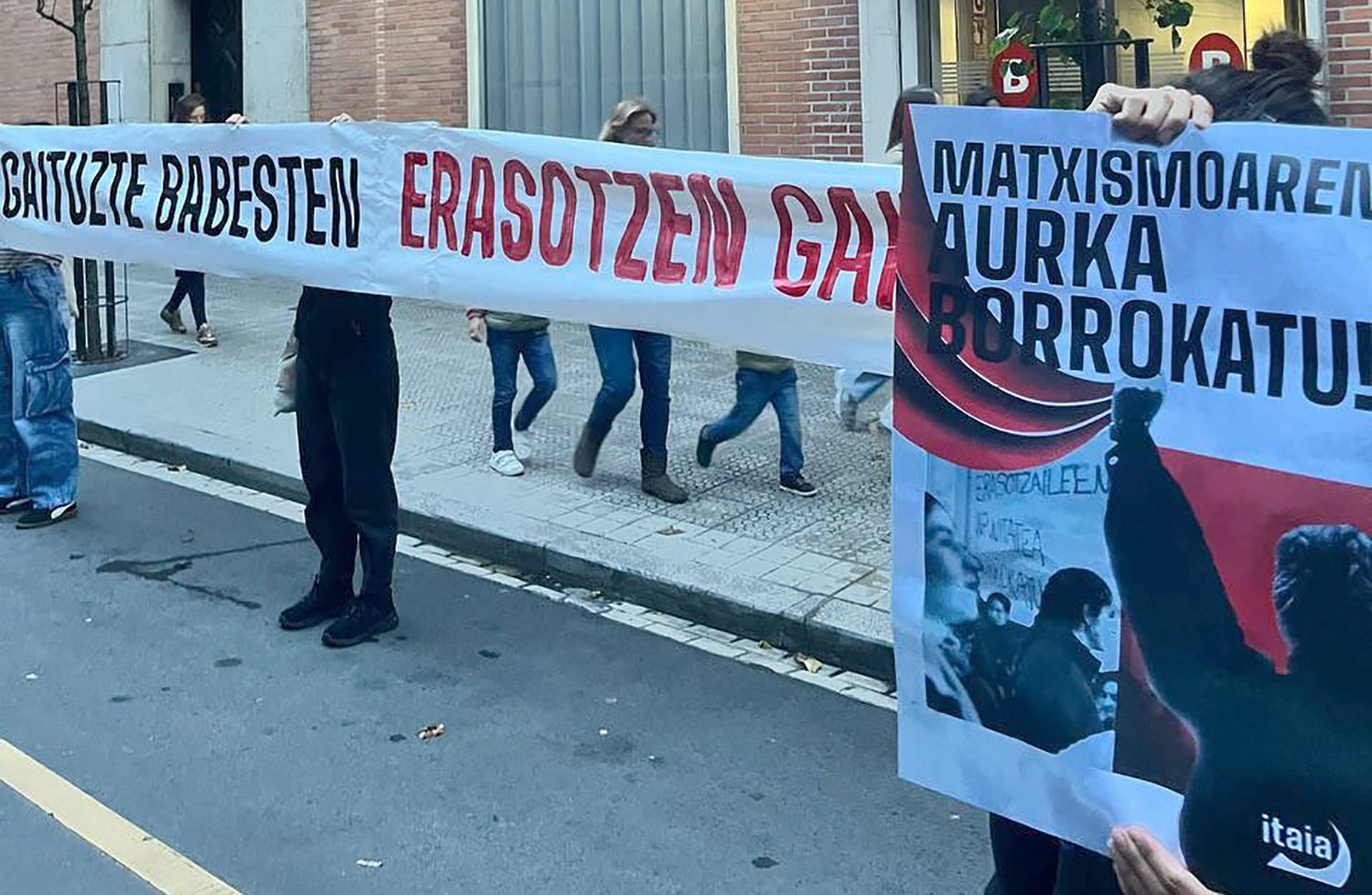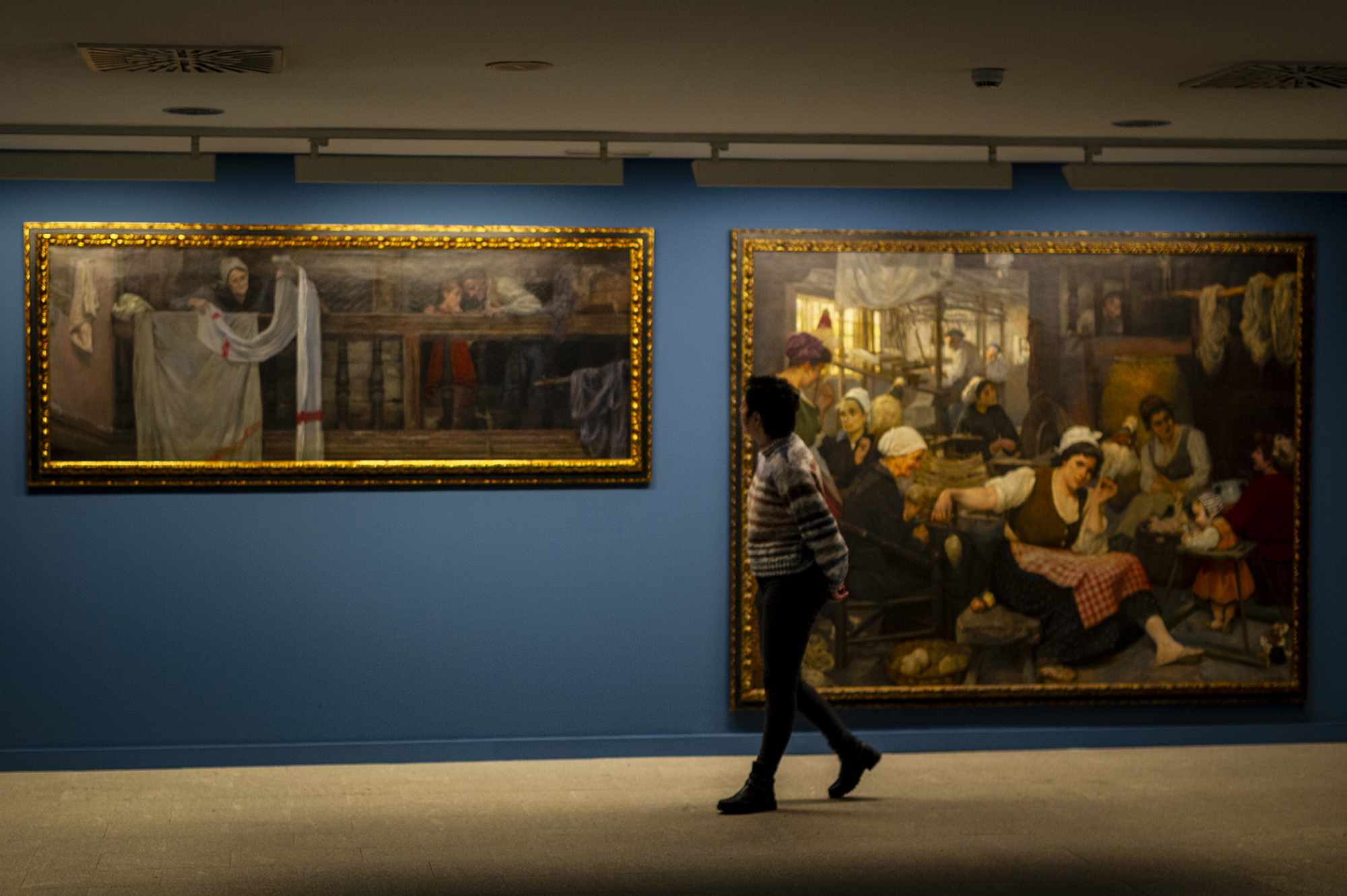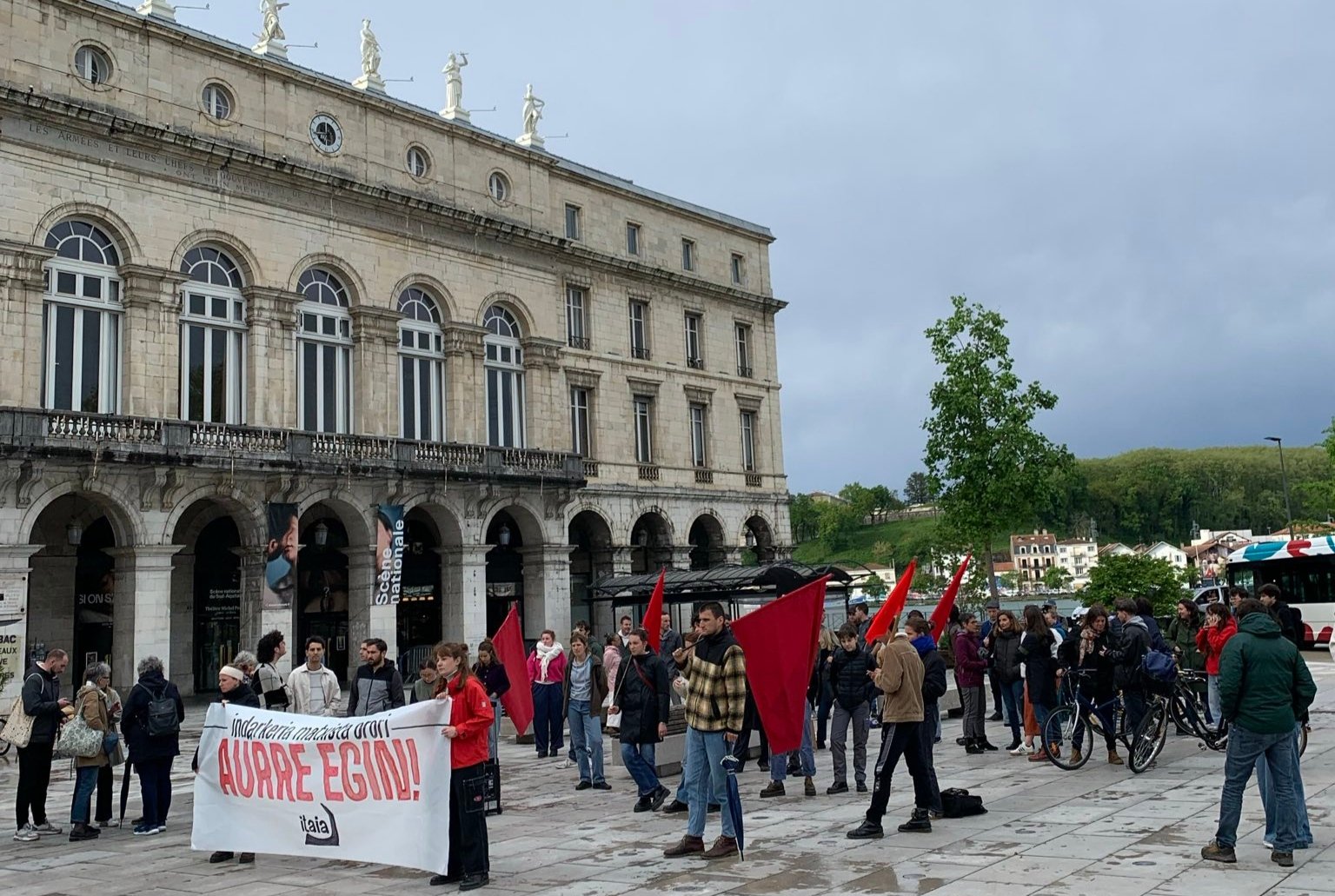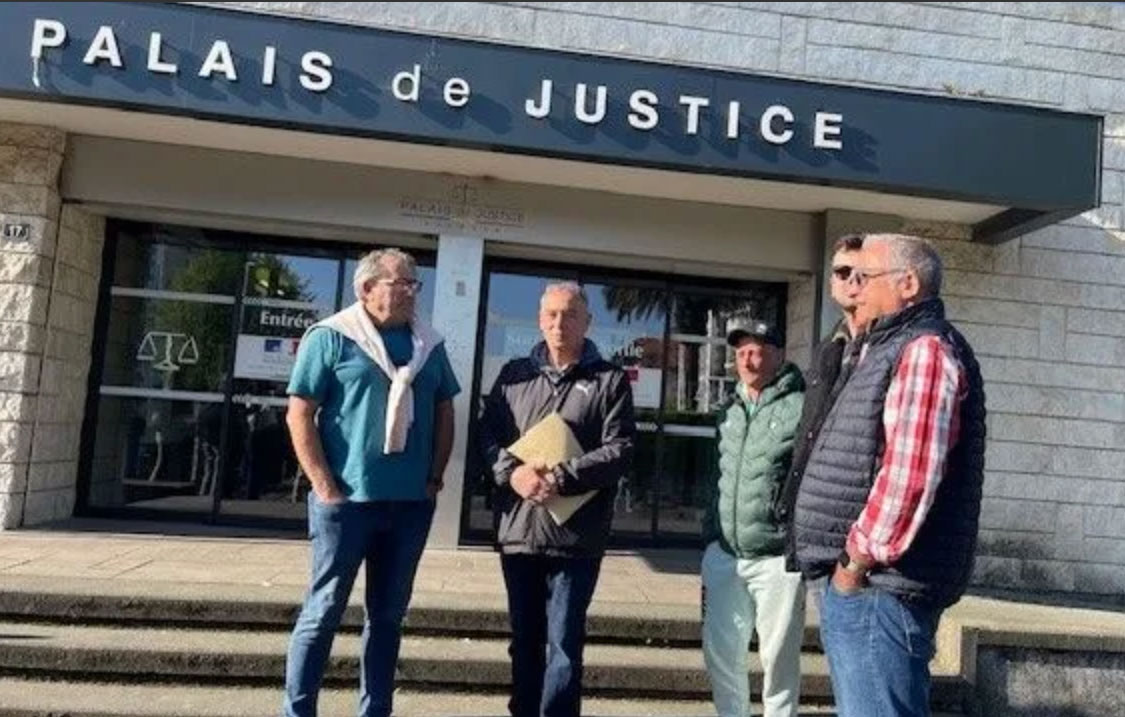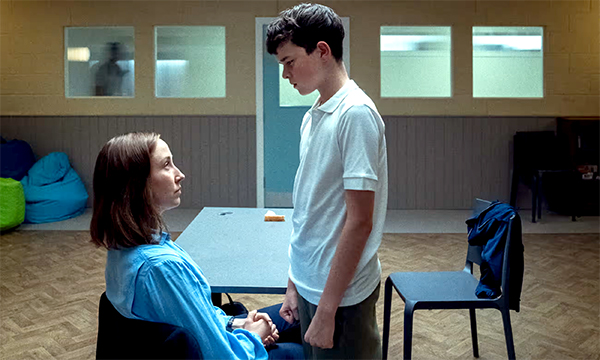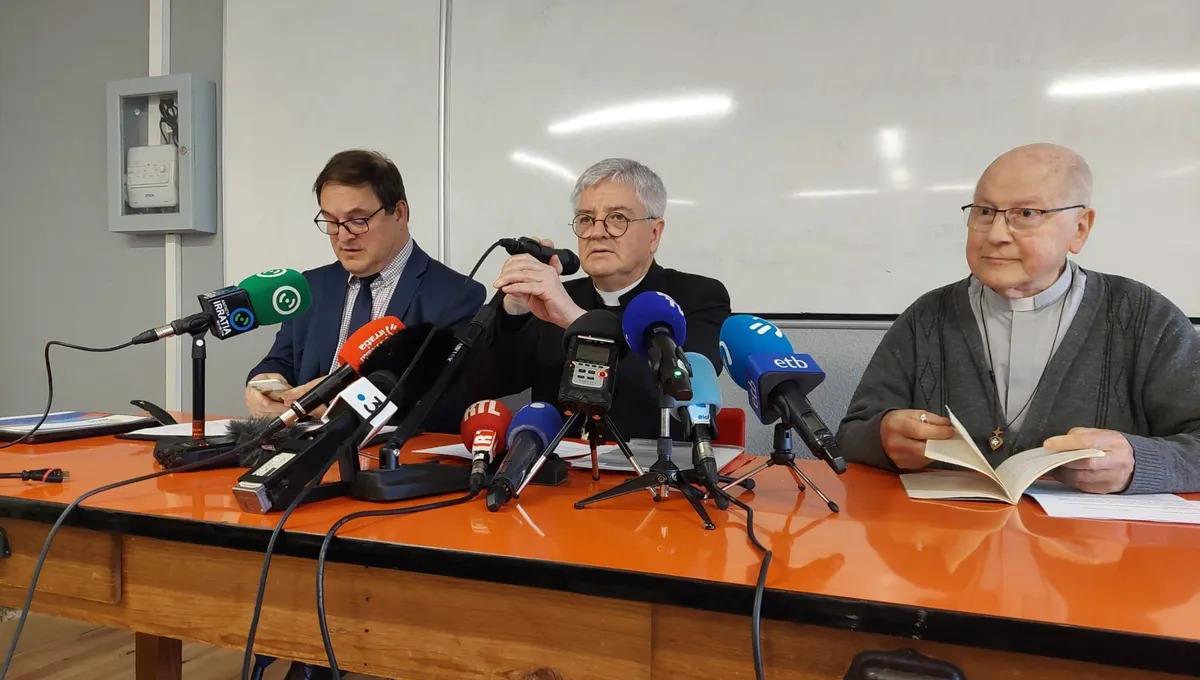Elvira Zipitria, Julene Azpeitia, Inaxi... The contribution of the women of Zumaia on the guided tour
- The three Members of the Basque Autonomous Community will participate for the first time in the European Heritage Days. This year’s theme is the flow of women and its objective is to make visible the hidden role they have played throughout history. An commented visit to Zumaia Emez was made on 6 October.

The quotation was at 11:00 in the morning, in front of the Cofradía, in a central house of the society of yesteryear. Even though it is not so obvious today, Zumaia has a close relationship with fishing. While men have gained the merit and fame of floating works, women have fallen into oblivion of land work. This is what Idoia Goñi says, the tour guide: “In the case of heritage, men have acquired a material heritage throughout history, which is physical. Women, for their part, have acquired an intangible heritage: their work on customs and language, their role in education, their care responsibilities…”.
It is believed that women have only been concerned with ground work. Thus, for example, the lambs have been of great importance in port activity. In addition to working, stitching hours were also a workplace for women. Conservatives, businesses and households have had that echo and continue to do so today. In many houses, for example, the technique based on tradition remains standing, even if it is done for different purposes. Although today it is not, in the past most conserves were made for the time of lent.
Historically, however, it has not been the only activities of women on the coast. Idoia Goñi explains two trades that have had a direct relationship with the boats: the barges and the seafarers. The first were women transporting goods and people across the river. The name of María de Lola stands out, since at the end of the sixteenth century she had the same exploitation license for the municipal vessel. He also explained that at the same time a group of women launched a project to build a boat showing that women had much to say in senior positions.
Euskera, nothing more
The people have been full of women who also made great contributions to education. Elvira Zipitria and Julene Azpeitia are some of the names that contestants liked the most. The first one, related to San Sebastian, originates in Zumaia, where they went to live for the work of their father. Goñi’s driver pointed out that, although in the war of 1936 he had to leave to the Northern Basque Country, the end of the war returned to San Sebastian and began to teach: “Zipitria is very dear for her work as a professor and for the bellows she has given to the Basque. In the hardest years of Franco, the birth of the clandestine ikastolas was due to him, and his knowledge in pedagogy was worthy of admiration for those times.” This autumn, director Maider Oleaga releases a documentary on the teacher, with the collaboration of EiTB.
Julene Azpeitia also left a great legacy in the world of teaching. If he had to summarize his biography in two words, Goñi assured that they would be children and Euskera. “He had a great experience in children’s literature and most of the recognitions he has received in that way: prizes, that the storytelling contests have their name in Zumaia and Durango… He is said to be more than a professor. However, it has to be said that it was the first of the opposition at the state level on that occasion, and thanks to it it got work.”
Spaces for empowerment
If you look at the street in Zumaia, there are 65 men and only five women. Although this is a symbolically potent data, Goñi considers that it is also important to look at the “spaces of women”, that is, not only in the empty plates but also in the actions of women in the most emblematic places of the locality. The Fuente de San Juan, for example, was during years the meeting point of women. At times when water did not reach the houses, women were in charge of going to the source. “It was a way to get out of the day-to-day house; men went to the bar and women gathered around the fountain. Besides at home, women had weight on the street,” Goñi explained. Taking advantage of the stop, the nuns Ángeles Sorazu and Francisca Labaien have received a special mention. Both are linked to the stiffer line of Christianity; the writer first, the creator of the Zumaia convent, the other.
Half a dozen women who have come to the appointment have left San Juan Iturria behind and concentrated in the Palace of Ubillos. He has quoted artists who at the present School of Music gave much to talk about in the field of culture. For example, the oikarra Inaxi Etxabe, who has not been the first known Bertsolari woman in the area, has left a deep mark among bertsos fans. His greatest achievement lies at the dawn of Franco: he was the winner of the bertsolaris championship organized by the Church in Arantzazu in 1951. Although in these times it was not a challenge anyone to be a woman on the stage, Etxabe made more than one mouth shut with his verses. Bertsolari zarauztarra Basarri said in a session that women were to blame for all the evils of men. Etxabe responded firmly, refuting his claim with a round verse. Basarri congratulated him at the end of the session, recognizing that he had left him in silence.
Irungo Landetxa auzoko pala txapelketa mistoan, hogei bikotetik bakarra da emakumeek osatua, 40 lagunetik bi baino ez dira emakumeak: Idoia Karrera eta Loiola Zuazu. Lehiaz, txapelketa misto eta ez mistoen arteko aldeez eta joko-mailaz mintzatu gara haiekin. "Emakumeok... [+]
Aspaldi pertsona oso zatar bat ezagutu nuen, urrun izatea komeni den pertsona horietako bat. Bere genero bereko pertsonengana zuzentzeko, gizonezkoengana, “bro” hitza erabili ohi zuen. Edozein zapaltzeko prest zegoen, bere helburuak lortzeko. Garai hartatik hitz... [+]
La bajona kolektibo kide Heiko Elbirak salatu du psikiatriak zisheteroarautik aldentzen diren erotikak kontrolatu nahi dituela.
Prentsaurrekoa eskaini dute ostegun honetan Marc Aillet Baionako apezpikuak, elizbarrutiko hezkuntza katolikoko zuzendari Vincent Destaisek eta Betharramgo biktimen entzuteko egiturako partaideetarikoa den Laurent Bacho apaizak. Hitza hartzera zihoazela, momentua moztu die... [+]











